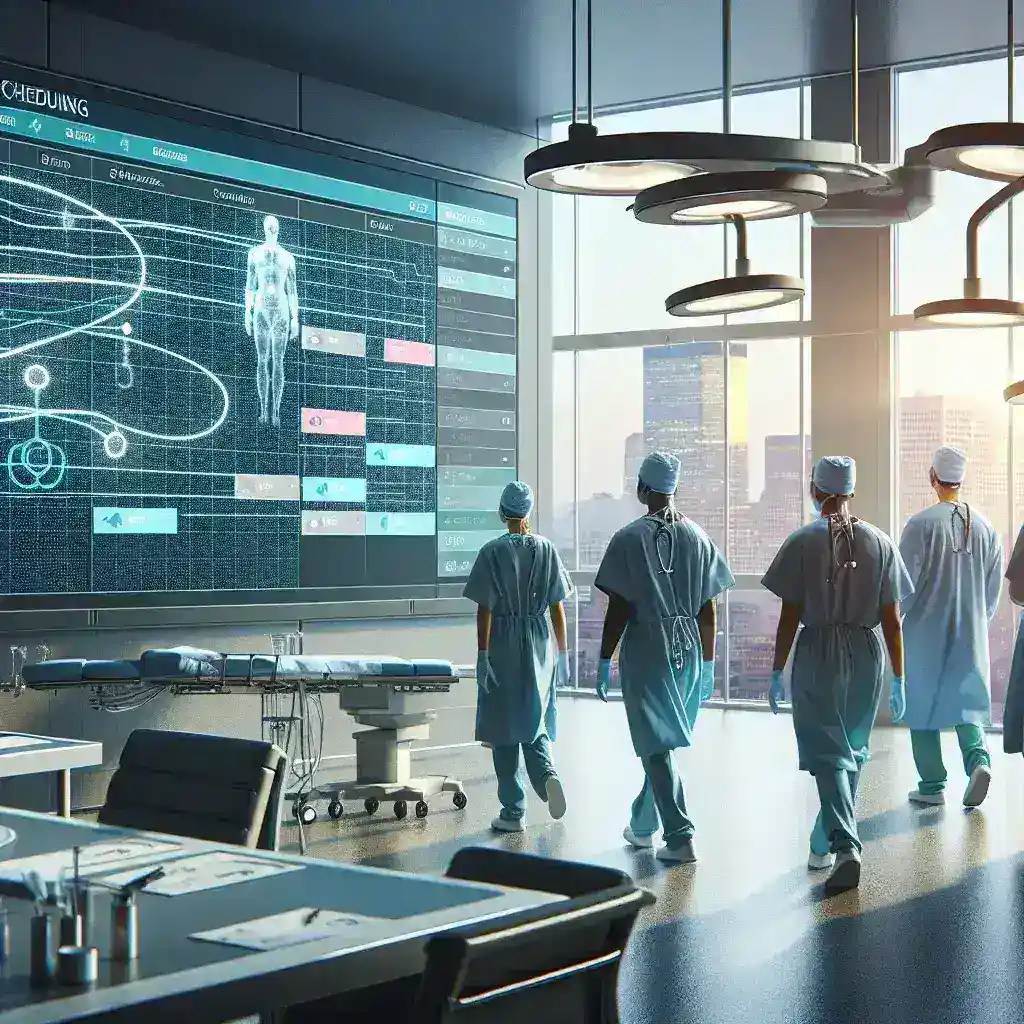Introduction
In the rapidly evolving landscape of healthcare, Boston hospitals are at the forefront of innovation, particularly with the integration of AI scheduling systems for surgeons. These advanced technologies aim to streamline the scheduling process, enhance patient care, and improve overall operational efficiency. This article delves into the significance of these systems, their benefits, challenges, and the future of surgical scheduling in Boston’s healthcare ecosystem.
Historical Context
The adoption of technology in healthcare is not a new phenomenon. Over the past few decades, Boston has been a leader in medical advancements, from pioneering surgical techniques to implementing electronic health records (EHRs). However, scheduling surgeries has remained a complex and often inefficient process. Traditionally, surgeons relied on manual scheduling methods, leading to issues like overbooking, missed appointments, and inefficient use of operating room time.
What is AI Scheduling?
AI scheduling systems leverage artificial intelligence algorithms to analyze data and optimize scheduling processes. These systems can assess various factors such as surgeon availability, patient needs, and even historical data about surgical durations and outcomes. By doing so, they aim to create the most efficient schedule possible, minimizing delays and maximizing the number of surgeries performed.
Key Features of AI Scheduling Systems
- Data Analysis: AI systems analyze vast amounts of data to predict the best times for surgeries based on multiple variables.
- Real-Time Updates: These systems can adapt to last-minute changes, such as surgeon availability or patient cancellations, ensuring that schedules remain up-to-date.
- Patient-Centric Approach: AI scheduling takes into account patient preferences and medical needs, improving overall patient satisfaction.
- Efficiency Optimization: By reducing downtime in operating rooms, hospitals can increase their capacity and deliver timely care.
The Adoption of AI Scheduling in Boston Hospitals
Boston hospitals, known for their commitment to excellence in healthcare, have started to implement AI scheduling systems. For instance, Boston Medical Center and Massachusetts General Hospital are leading the charge in this technological revolution. By working with AI technology firms, these institutions have begun to see significant improvements in their scheduling processes.
Real-World Examples
At Boston Medical Center, the introduction of an AI scheduling system has resulted in a notable 30% reduction in surgery cancellations. Surgeons have reported improved efficiency, with surgeries being performed more consistently within the scheduled time. This advancement not only enhances the surgeons’ workflow but also significantly impacts patient outcomes, as timely surgical interventions are critical for many conditions.
Benefits of AI Scheduling Systems
The benefits of adopting AI scheduling systems in Boston hospitals are manifold:
1. Improved Operational Efficiency
By automating the scheduling process, hospitals can minimize administrative burdens and allocate resources more effectively. This leads to a smoother workflow for the surgical team and reduced operational costs.
2. Enhanced Patient Experience
With a focus on patient needs, AI scheduling ensures that patients receive timely interventions. This improvement fosters a better relationship between patients and healthcare providers, as patients feel valued and prioritized.
3. Data-Driven Decision Making
AI systems provide valuable insights through data analytics, allowing hospitals to make informed decisions regarding staffing, resource allocation, and patient scheduling. This results in a proactive approach to managing surgical operations.
Challenges Faced
Despite the numerous advantages, the integration of AI scheduling systems does not come without challenges:
1. Initial Implementation Costs
The upfront investment required for these advanced systems can be significant. Hospitals must weigh the initial costs against the potential long-term benefits.
2. Staff Training
Healthcare professionals need adequate training to adapt to the new technology. Ensuring that staff members are comfortable with AI systems is crucial for successful implementation.
3. Data Privacy Concerns
As with any technology that handles sensitive patient information, data privacy remains a critical concern. Hospitals must establish robust cybersecurity measures to protect patient data.
Future Predictions
The future of surgical scheduling in Boston hospitals looks promising with the continued evolution of AI technologies. As these systems become more sophisticated, we can expect:
1. Greater Personalization
AI will further enable personalized treatment plans and scheduling tailored to individual patient needs, enhancing patient outcomes.
2. Integration with Other Technologies
AI scheduling systems may integrate with telehealth platforms, providing seamless patient care from initial consultation to post-operative follow-up.
3. Continuous Improvement
As more data becomes available, AI systems will evolve, leading to continuous improvements in scheduling accuracy and efficiency.
Conclusion
The adoption of AI scheduling systems in Boston hospitals represents a significant step forward in optimizing surgical operations. While challenges exist, the benefits of improved efficiency and enhanced patient care are undeniable. As Boston continues to embrace innovation in healthcare, the future looks bright for both surgeons and patients alike.

Leave a Reply